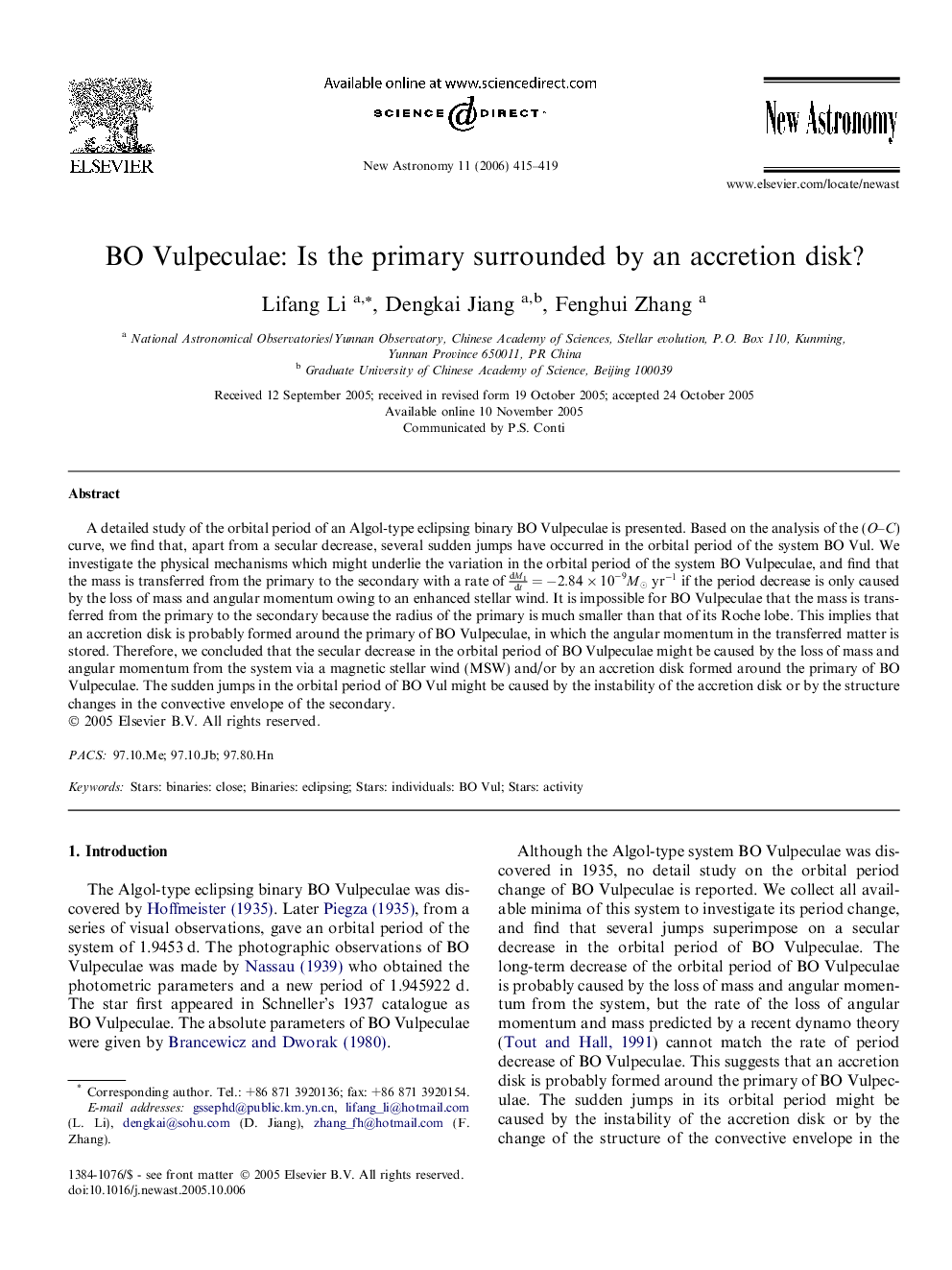| Article ID | Journal | Published Year | Pages | File Type |
|---|---|---|---|---|
| 1779604 | New Astronomy | 2006 | 5 Pages |
A detailed study of the orbital period of an Algol-type eclipsing binary BO Vulpeculae is presented. Based on the analysis of the (O–C) curve, we find that, apart from a secular decrease, several sudden jumps have occurred in the orbital period of the system BO Vul. We investigate the physical mechanisms which might underlie the variation in the orbital period of the system BO Vulpeculae, and find that the mass is transferred from the primary to the secondary with a rate of dM1dt=-2.84×10-9M⊙yr-1 if the period decrease is only caused by the loss of mass and angular momentum owing to an enhanced stellar wind. It is impossible for BO Vulpeculae that the mass is transferred from the primary to the secondary because the radius of the primary is much smaller than that of its Roche lobe. This implies that an accretion disk is probably formed around the primary of BO Vulpeculae, in which the angular momentum in the transferred matter is stored. Therefore, we concluded that the secular decrease in the orbital period of BO Vulpeculae might be caused by the loss of mass and angular momentum from the system via a magnetic stellar wind (MSW) and/or by an accretion disk formed around the primary of BO Vulpeculae. The sudden jumps in the orbital period of BO Vul might be caused by the instability of the accretion disk or by the structure changes in the convective envelope of the secondary.
